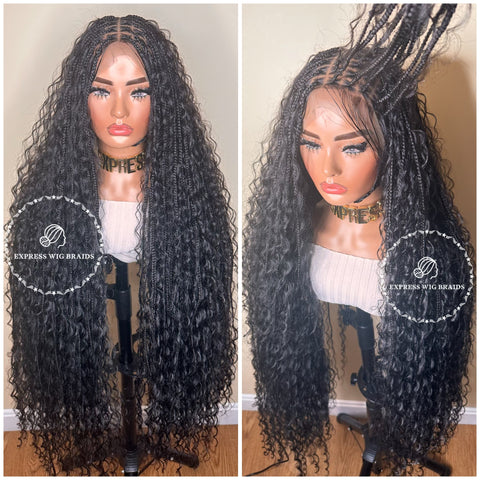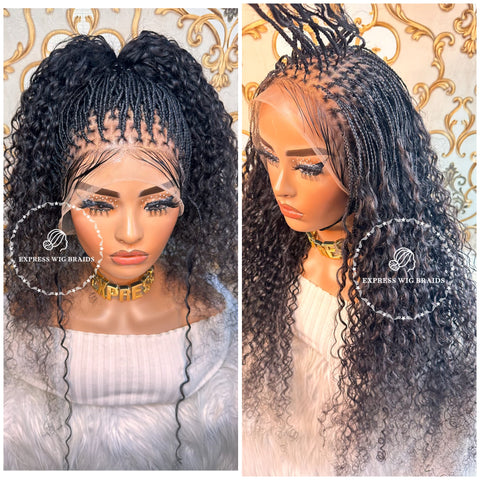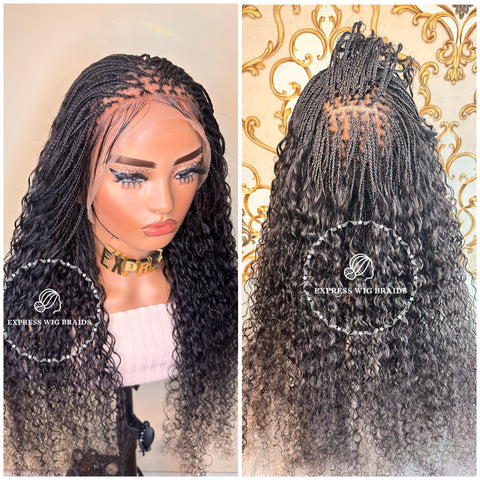The Link Between Hormones and Hair Loss: What You Should Know

Hormonal imbalances are a significant factor in hair loss, yet their impact is often overlooked. From the onset of puberty to menopause, and even during stress or pregnancy, hormonal fluctuations can significantly impact the health and growth of your hair.
In this article, we will explain the relationship between hormones and hair loss, shedding light on how hormones influence hair follicles, and what can be done to mitigate the effects.
Let’s get started!
The Role of Hormones in Hair Loss
Hormones are chemical messengers that regulate numerous bodily functions, including growth, and metabolism. Since hair growth is influenced by factors such as genetics, age, and general health, hormonal changes can have a significant impact on the strength and volume of your hair.
Below are some key hormones that can affect hair loss:
1. Estrogen and Progesterone
Estrogen and progesterone are key hormones in women’s reproductive health, regulating the menstrual cycle and pregnancy. These hormones also play a crucial role in hair growth.
During periods of high estrogen, such as pregnancy, hair growth is typically more robust, while lower levels of estrogen, as seen during menopause, can contribute to hair thinning.
Progesterone works alongside estrogen to maintain healthy hair growth, and a drop in progesterone can further exacerbate hair thinning caused by the loss of estrogen.
2. Thyroid Hormones
Thyroid hormones, including T3 (triiodothyronine) and T4 (thyroxine), regulate metabolism and have a significant impact on hair growth. Both hypothyroidism (underactive thyroid) and hyperthyroidism (overactive thyroid) can cause hair loss.
In hypothyroidism, the thyroid gland produces insufficient hormones, which can slow metabolism and disrupt the hair growth cycle, leading to thinning hair and excessive shedding.
On the other hand, hyperthyroidism accelerates the turnover of hair follicles, resulting in hair shedding, especially during the telogen (resting) phase. This type of hair loss is often temporary and resolves once thyroid hormone levels are normalized.
3. Prolactin
Prolactin is a hormone responsible for stimulating milk production after childbirth. High levels of prolactin, which can occur during pregnancy, breastfeeding, or due to a prolactinoma (a benign pituitary tumor), can disrupt the hormonal balance in the body and cause hair loss.
Also, prolactin levels can interfere with other hormones that regulate hair growth, leading to thinning hair in some women, particularly if prolactin remains high for an extended period.
4. Cortisol
Cortisol, often called the "stress hormone," is produced by the adrenal glands in response to stress. High cortisol levels can interfere with the normal hair growth cycle, triggering a condition known as telogen effluvium, where hair prematurely enters the shedding phase and falls out.
Prolonged high cortisol levels can lead to hair thinning across the scalp, which is usually temporary. However, if the stress continues or cortisol levels remain high for an extended period, it could prolong the shedding and slow down the recovery process.
5. Androgens
Androgens, such as testosterone and its derivative dihydrotestosterone (DHT), are hormones found in both men and women but at different levels. These hormones are key regulators of hair growth, and when their levels become imbalanced, they can contribute to hair thinning or loss.
The most common hair loss condition associated with androgens is androgenic alopecia, also known as male- or female-pattern baldness.
While androgenic alopecia is often associated with men, women can also experience this condition, especially after menopause when a decrease in estrogen and progesterone results in relatively higher androgen levels. This hormonal shift can lead to thinning hair, particularly on the crown or along the hairline.
Hormonal Hair Loss in Women
Each hair follicle follows its own growth cycle, and shedding is a natural part of this process. On average, people lose between 50 and 100 hairs a day. However, if you experience more significant hair shedding or thinning, it could indicate an underlying hormonal imbalance.
In women, hair loss related to hormonal fluctuations is particularly common during periods of major life transitions, such as puberty, pregnancy, and menopause. The hormonal changes that occur during these times can trigger or exacerbate hair loss.
During pregnancy, high levels of estrogen result in a prolonged anagen phase, leading to thicker, fuller hair. However, after childbirth, estrogen levels drop rapidly, which can lead to increased shedding, a condition known as postpartum hair loss. This shedding usually occurs within the first few months after delivery but typically resolves within 6-12 months.
Also, as women approach menopause, the decrease in estrogen and progesterone levels can trigger thinning hair, particularly along the crown and temples. The drop in these hormones can lead to an imbalance in androgens, further contributing to hair thinning and hair loss.
Managing Hormonal Hair Loss
1. Nutrition and Supplements: Ensuring a nutrient-rich diet with vitamins and minerals like biotin, iron, and vitamin D is vital for supporting hair health. Additionally, targeted supplements designed for hair growth may offer further benefits for those dealing with hormonal hair loss.
2. Medication Options: Hormonal hair loss, such as that caused by androgenic alopecia, can often be addressed with medications like minoxidil (Rogaine) to stimulate hair growth. In some cases, doctors might recommend anti-androgens such as spironolactone to block the hormone DHT, which contributes to hair thinning.
3. Hormone Replacement Therapy (HRT): For women experiencing hair loss related to menopause, hormone replacement therapy (HRT) can help restore estrogen levels, potentially improving hair density. However, HRT should only be pursued after consulting a healthcare provider due to potential risks and side effects.
4. Thyroid Management: If thyroid dysfunction is the root cause of your hair loss, addressing the thyroid imbalance with appropriate medication or lifestyle changes may help reverse hair thinning and restore normal hair growth.
4. Stress Reduction: Since high cortisol levels linked to stress can cause hair loss, adopting stress management techniques such as mindfulness meditation, regular physical activity, and sufficient sleep can help promote healthier hair.
Conclusion
If you're noticing significant hair loss, it's essential to seek guidance from a healthcare provider to determine the underlying cause and create a tailored treatment plan.
In addition, Express Wig Braids has a practical and fashionable solution for you, offering braided wigs that provide immediate coverage and help you look your best every day.












